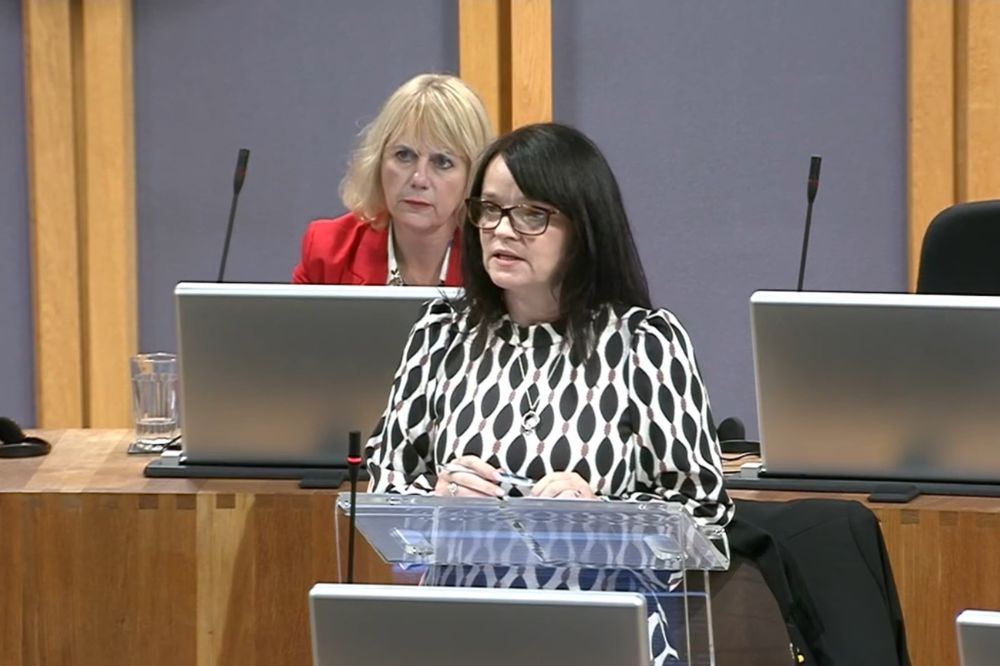Disabled children let down and ‘denied rights to education’

Chris Haines, ICNN Senedd reporter
Disabled children and young people in Wales are being fundamentally let down and denied their right to education, Senedd members warned.
Buffy Williams, who chairs the children’s committee, led a debate after an inquiry found many disabled children do not have equal access to education and childcare.
The Labour politician raised concerns about the Welsh Government rejecting six of the 32 recommendations emerging from the committee’s 239-page report.
She welcomed recognition that more must be done to uphold children’s rights to education.
But, addressing Welsh ministers, Ms Williams warned: “We do not feel that your response commits to a step change in the pace and scale of the action required to do so.
“Our committee, like the online advisory group, worries that maybe you are not giving these issues the priority they deserve.”
‘Distressing’
She told the Senedd that families’ distressing experiences left an imprint, with the committee hearing some children are thinking about and attempting suicide due to a lack of support.
Ms Williams said parents, carers and young people on the advisory group believe ministers’ formal response to the report fails to recognise the seriousness of the issues families face.
She warned the Welsh Government appears to have “resigned” itself to a substantial shortfall in inclusive childcare for disabled and neurodivergent children.
Criticising ministers’ decision to rebuff calls for mandatory training on disability for all school staff, she stressed the importance of understanding and meeting children’s needs.
Ms Williams, who represents Rhondda, said the Welsh Government’s response appears to delegate responsibility for equity in childcare and education to councils.
‘Traumatised’
She asked: “What more will it take for the Welsh Government to step in, to give local authorities the support they so clearly need?”
Gareth Davies said support for disabled children is patchy across Wales, with schools lacking funding, staff and expertise to deliver inclusive education.
Mr Davies, the Conservatives’ shadow mental health minister, warned that disabled children disproportionately experience bullying in school as he called for greater safeguards.
Plaid Cymru’s Heledd Fychan described the committee’s inquiry as heartbreaking, with failings having a devastating impact on families.
She told the debating chamber or Siambr that children as young as five or six have been traumatised and failed by the education system.
‘Disgraceful’
Carolyn Thomas, a Labour backbencher who chairs the petitions committee, stated the Senedd has received five petitions on Wales’ additional learning needs (ALN) reforms.
“The sheer number of petitions and signatures highlights the strength of feeling,” she said.
Laura Anne Jones warned ALN support is one of the most pressing issues facing families, with lower-level needs “falling under the radar”.
She said it is disgraceful that so many teachers and assistants still lack basic neurodiversity training, which leads to disabled children’s behaviour being wrongly labelled disruptive.
Calling for urgent action, the Conservative criticised ministers for failing to accept “crucial” recommendations, saying: “Inclusive education is not a luxury, it is a right.”
Historical context
Hefin David, whose daughter is autistic, sought to place the debate in historical context as he drew on his own family’s experiences.
He said: “In the 1970s and ’80s, my daughter would have been in an institution for most of her early life, she would have spent the whole time there.”
The Caerphilly Senedd member recognised that progress is sometimes not fast enough but he emphasised that young people are being treated better today than ever before.
Dr David, who is stepping down from the children’s committee, said: “To take too much of a downbeat note on these things is to devalue the experience of those who suffered.”
The Labour politician described the 32 recommendations as “too many”, warning this is problematic in terms of setting people up to fail with resources spread so thin.
‘Not good enough’
Responding to the debate on November 12, Lynne Neagle apologised to families for their experiences which she said made for distressing and sobering reading.
Wales’ education secretary said: “I am truly sorry … and I say on behalf of the [Welsh] Government that it is not good enough.”
Ms Neagle, whose first job after university was working with parents of disabled children, recognised that families too often feel the need to fight for support.
“It affected me deeply,” she told the Senedd. “And I want to acknowledge that not enough has changed for enough families – we can and we must do better.”
She said: “Rights on their own are not enough, they must be translated into action…. I know too many children and families have been waiting too long for their rights to become action.
“Like them, I am impatient for change. As a government, we will not stop until we get it right for all children and young people in Wales.”
Support our Nation today
For the price of a cup of coffee a month you can help us create an independent, not-for-profit, national news service for the people of Wales, by the people of Wales.




